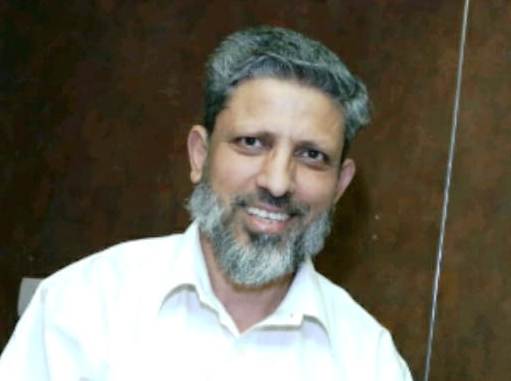[ad_1]
by MJ Aslam
Wartav takes two shapes in the Kashmiri community: cash and kind. It can be either or both on given occasions depending upon the proximity and mutuality among the relations.
Wartav in Kashmiri connotes two different meanings operating in two different contexts. In one context, it is used as a verb and in another context, it is a noun.
As a verb, Wartav indicates a behaviour, conduct, how one conducts oneself, acts in a given task or assignment or manages an arrangement or how one deals with or treats others through one’s conduct and behaviour. It is more than equal to Urdu and Hindi word Bartav which means one’s salook with others. You can capture so many sentences in your mind of the verbal use of Wartav. To exemplify, one should always Rut Wartawun with all; it depends upon the host how he will distribute the goodies Chiz Wartavin at the marriage of his son and so on.
As a noun, Wartav is a socio-cultural custom of giving presents to each other on auspicious occasions of weddings Khandar, betrothals and engagements[ Nikkah Nishani, laying of foundation-stone of new house Ka’in Di’un, job-appointments Nokri Lagun, exam-passing matric, graduation or another exam/imtihan pass Karun, entering a new house Navis Makanas Manz Achun, setting up some business Kahn Business Shore Karinand such like.
Wartav takes two shapes in the Kashmiri community: cash and kind. It can be either or both on given occasions depending upon the proximity and mutuality among the relations. Under Shariah Law, it is called Hibba Bil Iwaz, a returnable gift. The basic purpose of making Wartav right from the olden days, which used to be invariably in cash, was mutual funding. To help out each other financially, the host who had to incur a lot of expenditure on arrangements for the wedding of his son and daughter was financially helped by cash-wartav.
The said purpose of Wartav has not diminished from the Kashmiri society but with the passage of time, it has taken new shapes under new traditions, more of a farce competition among show-offs or neo-rich in recent times with respect to the traditional concept of Wartav in the society. To iterate, people do give Wartav on weddings and other auspicious occasions to each other both in cash and in kind. The amount of money in cash Wartav is determined by the factors like the economic status and mutuality of Hi’uin Du’iun in their relations, friendships and other acquaintances. I have been told that in rural Kashmir Wartav is identified with the term Hi’uin Du’iun which is near to the meaning of Hiba Bil Iwaz.
The kind Wartav comes in the shape of gold ornaments, called Sone Vas, of gold-pound, gold coins, rings, chain pendulums, earrings, bangles, bracelets, tie-pin and buttons, for the bride and the bridegroom. Iterating, it is returnable gifts mostly with additions to the original under social traditions.
Wartav in Kashmir is also called Guli-Myiuth. Guli means hands, while Myiuth means kiss. Hence, it means kissing on the hands, and forearm, a gold ornament-like bracelet fastened on the forearm of a bride at a wedding by relations and other close friends.
While doing Watav, it is customary to kiss the hand or forehead of the bride or bridegroom by the wartav-giver and it appears that the term Guli Myiuth has come into use by the juxtaposition of the two terms side by side. It needs a mention here that Gui-Myuth is different from Athe-Myiuth. The latter is referred to as a lady who is very skilled in the preparation of tasty dainties and dishes and we say, she has Athe-Myuith. Guli-Myuth finds mention in some old Kashmiri marriage songs called Wanwun.
The Pohh Custom
In rural Kashmir, there was a custom of giving rice on marriage occasions as Wartav which was like a mutual-funding in a highly impoverished Kashmiri community of the olden days. This custom prima facie had roots in a Brahman tradition of Kashmiri Brahmans, Bataas, which is and was called Pohh-Bog.

From the times of spiritual transformation of the overwhelming Kashmiri community from Hinduism to Islam in the fourteenth century, several pre-Islamic traditions remained intact among the majority community. Pohh was one such tradition. Here cooked rice and fish were offered to an imaginary tutelary Devta of the house on a Tuesday or Saturday of the dark month of Pohh by Kashmiri Brahmans.
Etymologically, Pohh Rasm among rural Kashmiri Muslims had roots in Brahman Rasm of Pohh–Bog to Devis and Devtas who were considered as protectors of their households by Kashmiri Brahmans. The rural Kashmiri Muslims’ custom of Pohh was related to marriage occasions only but, obviously, like many other traditions of Musalmans of the valley, it was adopted over a period of time under the cultural influence of Brahmans.
(MJ Aslam is a published author and a columnist. Ideas are personal.)
[ad_2]
#Kashmirs #Wartav #Guli #Myiuth
( With inputs from : kashmirlife.net )